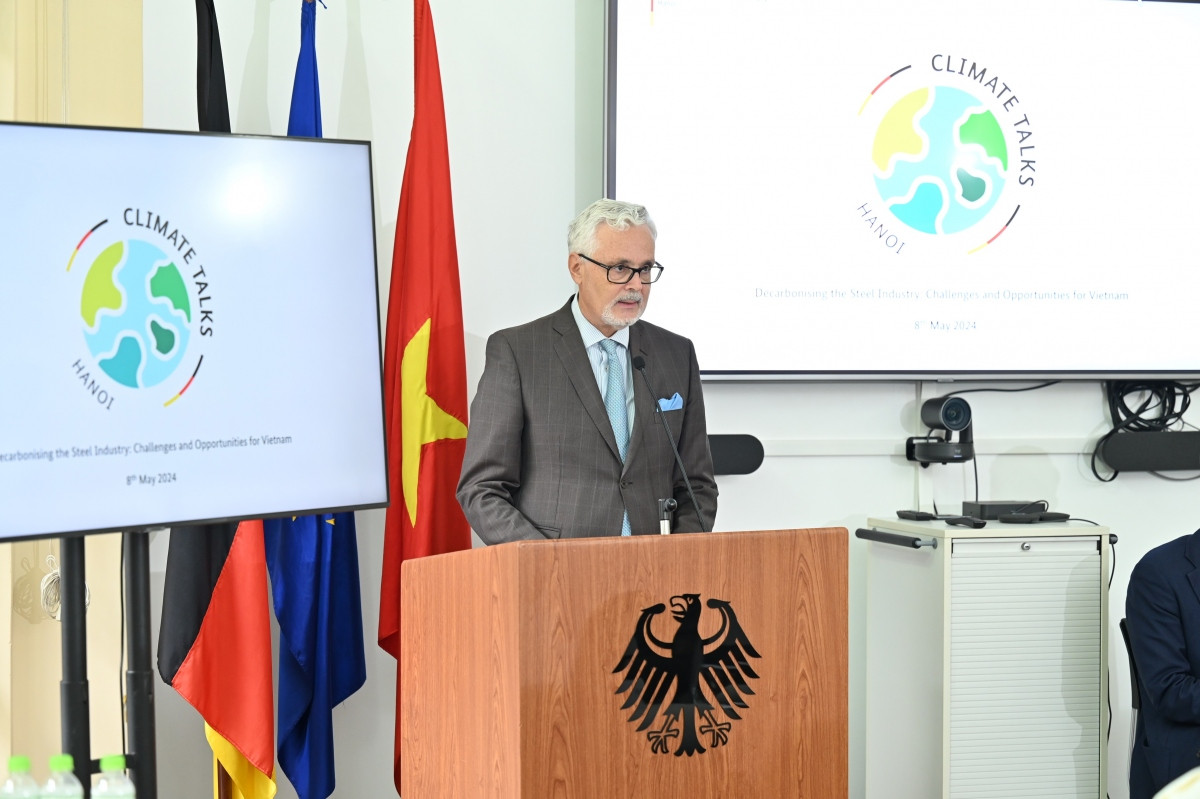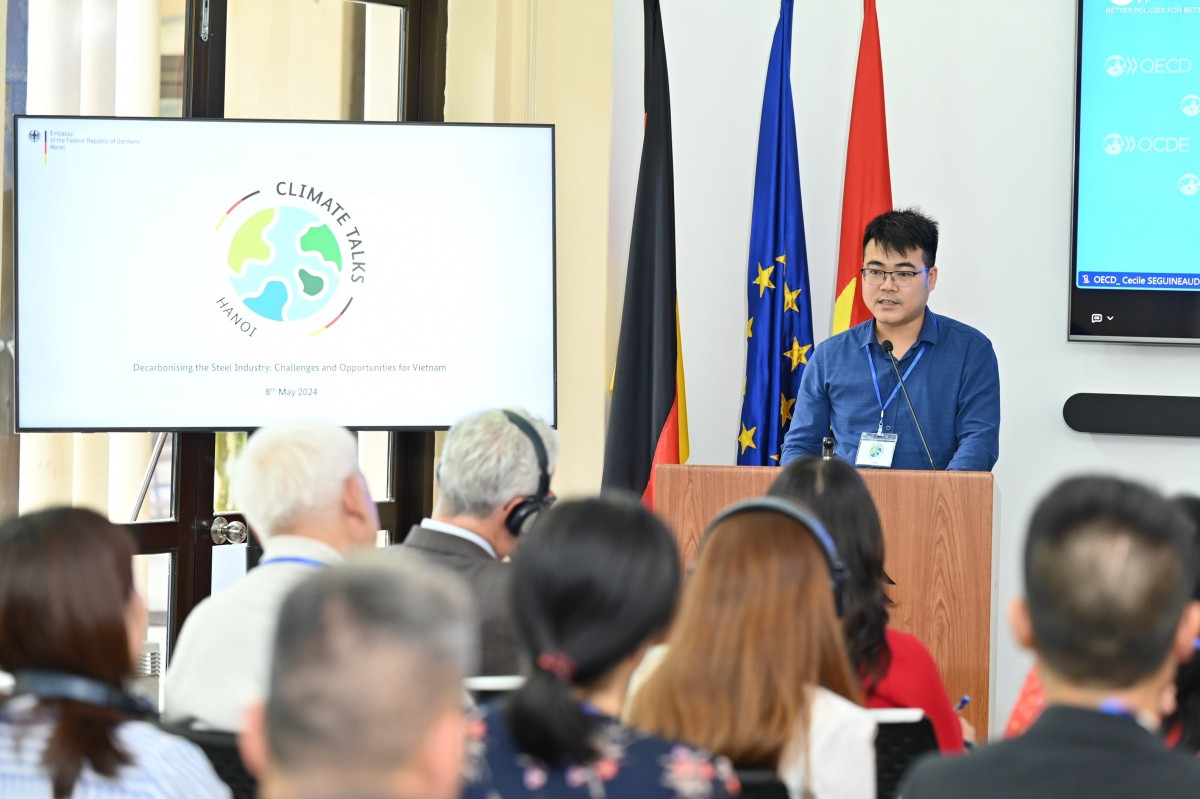

The “Hanoi Climate Talks” series is expected to provide a platform for policymakers, experts, businesses and the broader public to exchange experiences, raise awareness, and foster greater cooperation.
“The decision to host ‘Climate Talks’ here in Vietnam is a recognition of Vietnam’s climate ambitions and a testament to the close cooperation between Germany and Vietnam in the field of energy transition,” said German Ambassador to Vietnam Dr. Guido Hildner in his opening speech.
“Global steel production accounts for at least 7% of global greenhouse gas emissions. Its carbon footprint touches almost every industry. Germany’s steel sector is one of the largest emitters of CO2. In Vietnam the steelmaking industry, which ranks number one in Southeast Asia, remains one of the main contributors to the country’s carbon emissions. Europe and Germany aim to become frontrunners in the production of low-CO2 steel. Our primary objective is to combine prosperity with decarbonization,” stated the diplomat.
“We all know that the green transition of heavy industries is a global challenge. Therefore, Germany launched the Climate Club during last year’s COP28. One of its main objectives is to offer support for developing and emerging economies in their efforts to leapfrog into climate-friendly industrial development. I am convinced that by making the steel sector fit for the future, it can make a significant contribution to global climate action and economic prosperity,” he added.
During the panel discussion, international experts explored the technological, economic, and policy aspects of transitioning steel production to more sustainable practices.

Taking the floor, Chu Hoang Duc Anh of the Vietnam Industry Agency under the Ministry of Industry and Trade, underlined the need for decarbonisation and highlighted national strategies for sustainable transformation aligned with global climate goals.
Prof. Dr. Bui Anh Hoa, lecturer and head of the Materials Engineering Department of the Hanoi University of Science and Technology, shared insights into the production processes of the steel sector in Vietnam and his analysis on how to decrease carbon emissions in steelmaking from the scientific perspective.
For her part, Cécile Seguineaud, industry policy analyst of Clean Energy Finance and Investment Mobilisation under the OECD, underscored that high investments are needed in low-carbon technologies in order to align industry growth with countries’ net-zero emission targets.
She therefore highlighted the importance of assisting emerging and developing economies when designing solutions for financing to improve the enabling conditions that can accelerate the steel sector’s transition.
During the discussion, Jennifer Pham, regional advisor on Sustainable Value Chains of the Royal Danish Embassy in Vietnam, gave a presentation on the EU’s Carbon Border Adjustment Mechanism (CBAM) which will seek to tackle the risk of carbon leakage, create a level playing field for steelmakers, encourage industries around the globe to decarbonize, and embrace greener technologies.
VOV